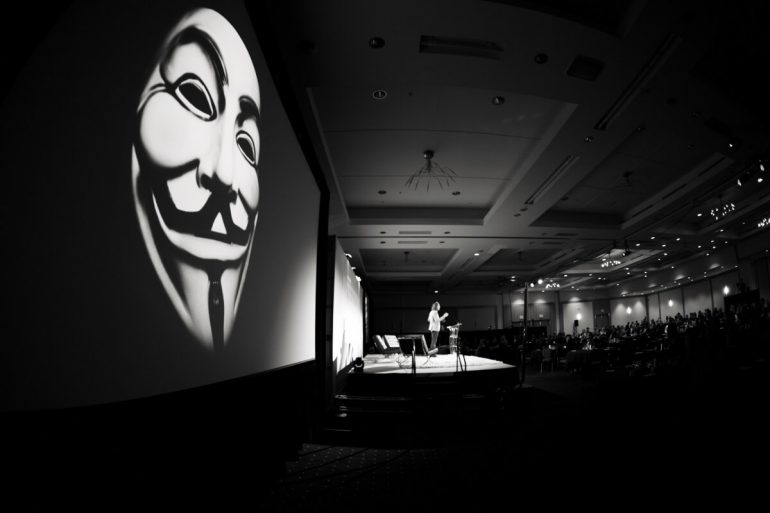Anthropocentrism has become our centre of ethical gravity. It is dying a painful and protracted death, but it is most certainly dying. Our cosmos harbours abundant life, and given the statistics, this includes intelligent life. And yet, here we are, onboard Apollo 13, drifting through the void with no mission or destination. We’re exhausting our fuel and provisions, and our atmosphere is a growing threat to our existence. Most of us still have no substantive sense of a present or pending peril, never mind a clear and meaningful sense of purpose.
And with those words, the opening words to the script of our eighth major event, I sat down for a virtual espresso with one of Canada’s very best and brightest: Joshua Mckenty. Mckenty is the CTO of Pivotal, co-founder of OpenStack and Piston Cloud (a company he sold to Cisco), and long-standing member of the Canadian Cloud Council. He’s also a returning speaker at Control; a major return to form for our organization and unapologetically heavy discussion about the impact of technology on human (d)evolution.
The Canadian Cloud Council’s Control will be held in Edmonton, Alberta on May 14 and 15, 2018. Betakit, a proud media partner, is offering its readers a $200 ticket discount to Control by clicking on this link. To whet your appetite for the main event, you’ll find the results of my tête-à-tête with Mckenty below.
Paradigm of purpose
Robert Brennan Hart: Our emerging generation of business leaders are hungering for a clear and common sense of purpose, but can we offer them one? If we humans aren’t the purpose of everything, what purpose do we serve? What purpose can we serve?
Joshua Mckenty: I need to start by acknowledging that the time and space to consider such a question is possibly the greatest sign of a position of privilege. The luxury of choosing how to create meaning in the world is a sign of our species’ evolution; the fact that most of our species do not yet share such privilege shows how little advanced we really are.
The worst atrocities of our species have been perpetrated within the name of “purpose” – by those who would inflict their purpose on all others.
For those of us who do have such a position, I believe our first priority must be to provide this same privilege to those who do not. The freedom to make an individual choice about where and how we create meaning in the cosmos, while certainly not the only freedom we enjoy, must be the first freedom that we ensure is shared by all.
The worst atrocities of our species have been perpetrated within the name of “purpose” – by those who would inflict their purpose on all others, and rob them of this fundamental freedom. Let’s make it our purpose to end such imposition of will.
What follows from this, if we carry it forward, are two other mandates: first, to preserve the freedom of meaning-making for future generations of our own species; and second, to extend the ideals of “Pragmatic Tolerance” (that is, tolerance of everything but intolerance itself) as much as possible to species other than our own.
Maybe Star Trek had it right: in much the same way that travel (especially the kind that involves a deep immersion in local culture and language) cures most of the diseases of prejudice and xenophobia, perhaps a commitment to exploring and embracing the various forms of intelligence found on our own world and others will cure our species of both the short-sightedness and hubris that will otherwise most certainly be our downfall.
The long feedback loop of revolution
RBH: We are in the early stages of a new economic system that fundamentally thrives on the sharing and open distribution of physical, intellectual, and artistic resources. The proliferation of closed and privately-held intellectual property no longer provides the greatest value to any conceivable group of stakeholders. Political and economic power is rapidly shifting from century old centralized entities to more agile, adaptable and distributed socio-economic frameworks. And yet, these innovative frameworks are rapidly acquired by the same century old entities and further entrenched in oligarchic incumbencies.
Will the utopia of democratized technologies drive equality and opportunity, or will it merely be the case of a one ruling class replacing another precisely as George Orwell once predicted?
JM: All systems (including human societies) require a feedback loop. When a short-term feedback loop (such as the “voice of the people” as imagined within democratic systems) ceases to function, the long-term feedback loop of revolution will inexorably kick in.
Open source, creative commons and the so-called “Sharing Economy” are not facets of a new economic system – they are basic human social functions that have been rigidly and increasingly suppressed since the rise of the “Corporate” concept. There is nothing magically new in the cryptocurrency movement, nor can any incantation of “Open” this, that or the other, subvert the functioning of a techno-social system that still pivots around antiquated concepts of “earned” and “owed”.
We don’t even have a new ruling class emerging yet, and the revolution (when it comes) won’t be powered by the brute force hashing of SHA1 – this is just so much bread and circuses.

Requiem for an American dream
RBH: Our laws and ethical practices have evolved over centuries. Today, technology is on an exponential curve and is touching practically everyone, everywhere. Changes of a magnitude that once took centuries now happen in decades, sometimes in years. Not long ago, Facebook was a dorm-room dating site, mobile phones were for the ultra-rich, drones were multimillion-dollar war machines, and supercomputers were for secret government research. Today, hobbyists can build drones and poor villagers in India access Facebook accounts on smartphones that have more computing power than the Cray 2—a supercomputer that in 1985 cost $17.5 million and weighed 2,500 kilograms. A full human genome sequence, which cost $100 million in 2002, today can be done for $1,000—and might cost less than a cup of coffee by 2020.
We haven’t come to grips with what is ethical, let alone with what the laws should be. Consider the question of privacy. There is a public outcry today—as there should be—about NSA surveillance, but the breadth of that surveillance pales in comparison to the data that Google, Apple, Facebook, and legions of app developers are collecting. Our smartphones track our movements and habits. Our web searches reveal our thoughts. With the wearable devices and medical sensors that are being connected to our smartphones, information about our physiology and health is also coming into the public domain.
Where do we draw the line on what is legal, ethical; and ultimately more important to the future of the human race than increasing shareholder value?
JM: As with the original Pandora’s Box, we are already too late to answer fundamental questions of privacy and surveillance. But paradoxically, the only feasible effort to address such ethical questions must be to slow down, and make the framework of such ethics a part of every basic education.
We routinely waste the formative years of our progeny on a mixture of antiquated skills (handwriting, anyone?), the memorization of nationalistic propaganda thinly veiled as a study of “history,” and an insanely uneven application of lessons in emotional intelligence, critical thinking, collaboration, and teamwork that are driven by the localized economics of whatever neighborhood your child had the fortune or misfortune to end up in.
Without a radical reconsidering of what constitutes an education, and a 30-year effort to raise a generation who can think holistically about the social and ethical tradeoffs embodied, not in today’s technological advances but in those on the horizon (the impact of which our most terrifying dystopian visions don’t even come to capturing), we simply don’t stand a chance.


